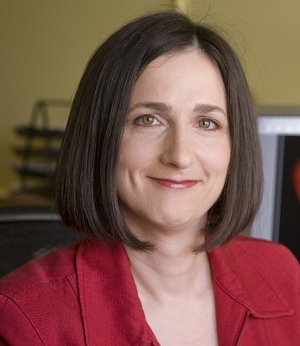|
“Are there other planets like Earth out there?”
This question is no longer the realm of science
fiction but of hard science. More than 450 planets
around stars other than our Sun have been detected so far.
While most of these are giant planets similar to Jupiter,
there are a growing number of lower mass planets down to several Earth masses.
Planets are extremely faint sources on the sky compared to their
parent stars. The most common detection methods therefore are indirect:
either trying to determine the small wobble of the star induced as the
planet orbits around the common centre of mass or a slight dimming of the
star's luminosity as the planet covers a (very small) portion of the stars
surface while passing in front of it. Nevertheless there are dozens of
exoplanets with atmosphere measurements, and Sara Seager was part of the
team that co-discovered the first exoplanet spectrum. She even believes
that we are on the verge of finding a habitable world outside our own solar system.
“Searching for planets around other stars is a very exciting research area,”
says Sara Seager. “The Biermann lectures allow me to introduce more astronomers
to this rapidly growing field, which is becoming a major part of astronomy and
astrophysics. On the other hand, during my stay at MPA I am learning how people
here work with dedication and commitment to their simulations. In exoplanet
atmosphere and interior research, observation is currently leading theory,
but there will soon be room for the same level of detailed simulations.”
Sara Seager was invited to MPA in the framework of the
Biermann lecture series, which was started in 1997.
This initiative aims to stimulate scientific activities
across the Munich astronomical community and has been a
huge success in previous years. World-class scientists
working on topics in theoretical and computational astrophysics
are invited to spend one month in Garching, give a series of prize
lectures and interact with colleagues from the various surrounding institutes.
While several previous visitors shared the MPA's research interests,
this years' topic broadens the scope to a new and exciting field.
Sara Seager is the first female Biermann lecturer and also the
youngest scientist to receive this honour, in recognition of her
early involvement and seminal contributions to this dynamic field.
Biermann lectures 2010 by Prof. Sara Seager (MIT)
Friday, June 11:
"Exoplanet Atmospheres: from Discovery to Characterization and Beyond"
Wednesday, June 16:
"Exoplanet Mass and Radius, and the Physics of Planet Interiors"
Wednesday, June 23:
"The Thermodynamics of Biosignatures and the Search for Habitable Worlds"
All lectures will start at 15:00 in the new seminar room at MPE and will be preceded by tea, coffee and cookies at 14:45.
| 

